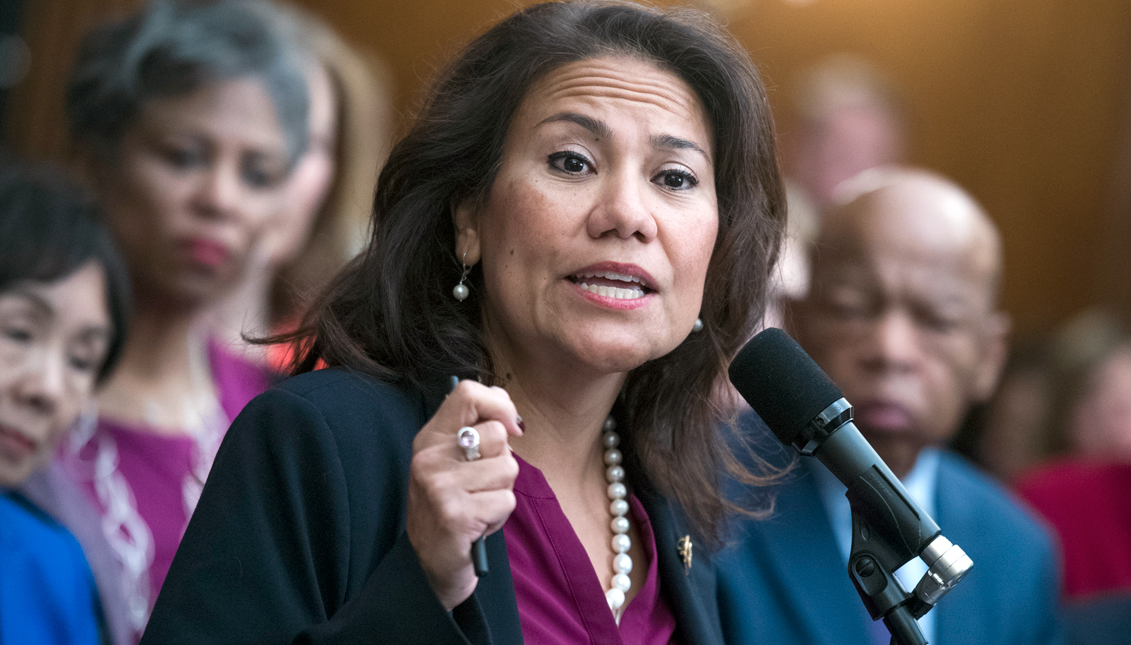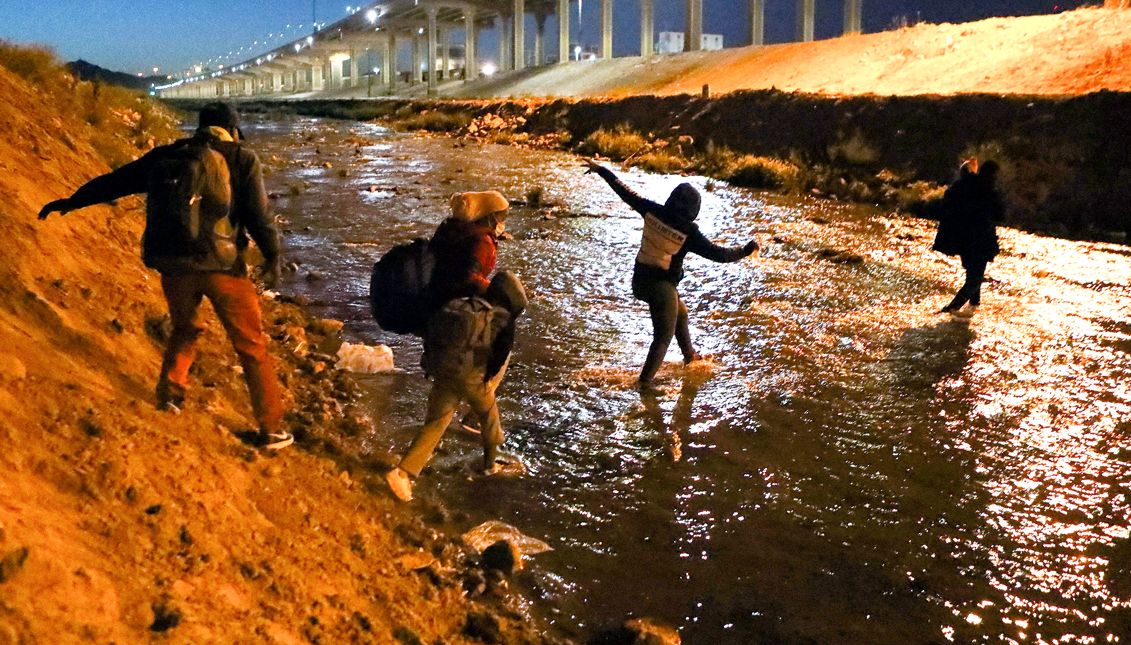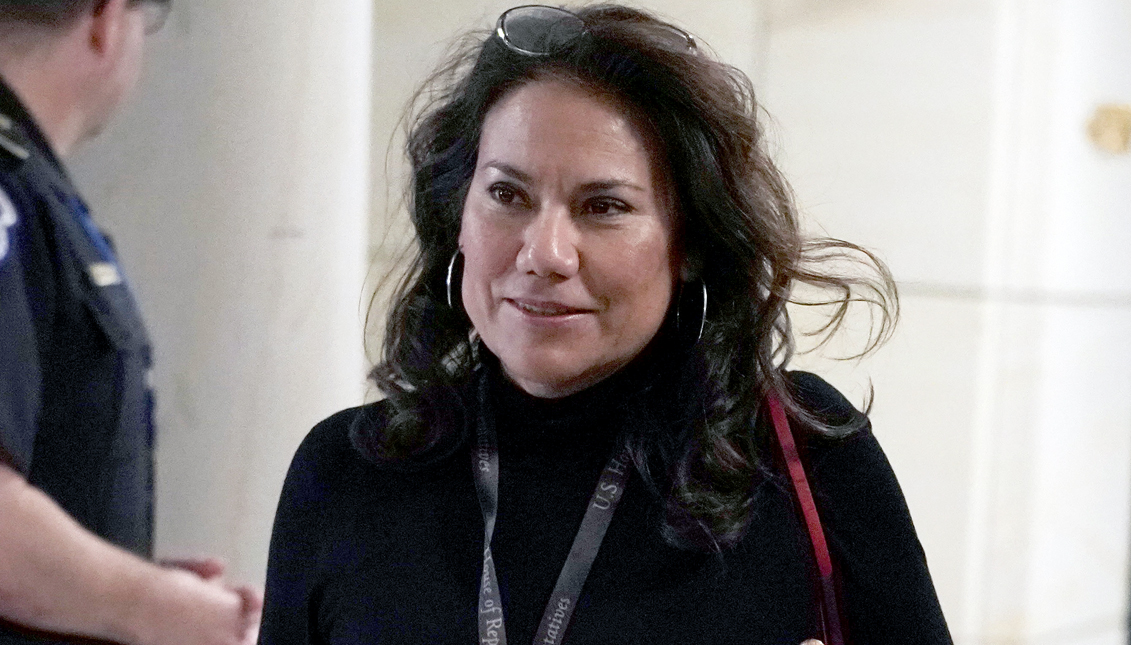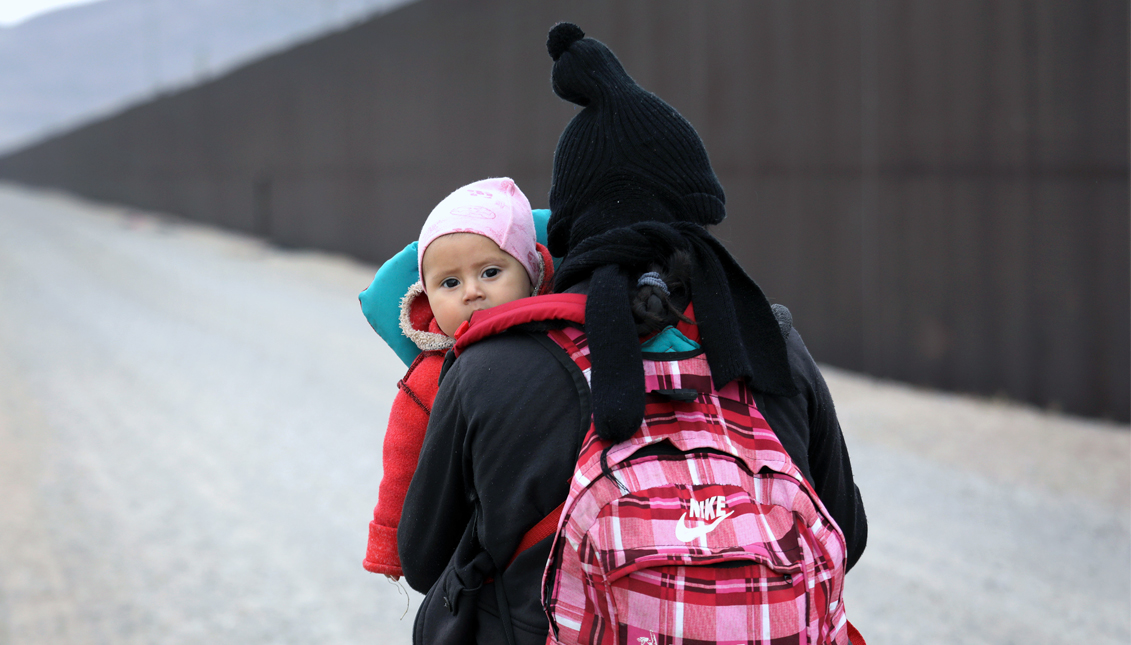
Fighting The Good Fight At the Border
“I think the way El Paso has engaged can set an example for the country.”
Rep. Veronica Escobar, a Democratic Congresswoman representing El Paso and surrounding border communities in southern Texas, is on the front lines fighting the misinformation about what is portrayed as an immigration crisis at the border and for a rethinking of draconian immigration policies.
The congresswoman recently spoke to AL DIA about the misinformation regarding her border community, President Joe Biden’s administration’s response to migration, and ultimately, how El Paso persevered through the negative attention, and the toll it has taken on its residents.
Escobar recently wrote an Op-Ed for the New York Times in which she expressed her frustration with the detention process at the southern border and the way her community was put under intense scrutiny, unjustly.
“It came from a place of wanting the country to stop with this obsession with the border and take a step back,” she said.
“I really wanted to speak to colleagues as well, fellow legislators, but also people who consume the news every single day and who are interested genuinely and want to know what’s going on,” she said.
What the United States keeps getting wrong, Escobar said, is believing that immigration can be stopped. But whether the nation wants to believe it or not - closing the southern border is not the solution.
“Number two, people believe that all of (this immigration) only happens at the border.” she said. It does not, although she believes the border should be managed better.
Yet, by increasing Customs and Border Protections investment, or building walls and flying drones, the federal government is essentially creating militarized zones within and surrounding the border communities and the dozens of others scattered along the U.S.-Mexico border in Texas, New Mexico, Arizona, and California.
It has a direct effect on the self-perception, self-worth, and quality of life of communities in El Paso and along the border.
“We definitely have been through a lot, and I will tell you it does take a toll,” Escobar said. Last month she was finally able to invite congressional delegations to tour migrant facilities and it was like reopening a wound “over and over and over again.”
“As a community, we open up our arms to the stranger and we think about children as children and we think about vulnerable people as being vulnerable. And that our government can’t get that right — It’s a painful thing,” she said.

But in order for people, especially moderates, to be open to rethinking immigration, migration, and the immigration process here in the United States — to understand that it is a crisis for those who are leaving everything behind to come to another country, and not the other way around — work needs to be done in clarifying what the alternatives for migrant detention look like.
“One of the few legal pathways, especially if you’re from Central America, is asylum,” Escobar said.
“One of the few legal pathways, especially if you’re from Central America, is asylum,” Escobar said.
As it stands, she said it’s a process that views immigration through a criminal lens.
“One thing that I want folks to understand is that many of these individuals, aside from arriving without papers, are fundamentally lawful residents. They are fundamentally law-abiding,” she said.
Aside from the morality of the situation, Escobar also brought up that maintaining detention centers, in the end, cost the American public a significant amount of money.
“If we could redirect that funding to alternatives to detention, in other words, programs that are connected with migrants, where asylum-seekers and other migrants have to check in with caseworkers or have to check in with their local office and stay connected to them — it is less costly and far more humane,” Escobar said.
In the end, it gets back to the heart of the matter, a path to citizenship with incarceration is a deeply flawed system.
“You’ve got to think about what we’ve been doing as a country all these years and we’ve got to rethink the way that we approach the situation,” she said.
The vast majority of migrants want a legal pathway to citizenship, and they want to be able to live and work legally in the U.S. so that they can raise their families. They already pay taxes, and contribute greatly to the economy.
“So we have to take a step back and look at everything that’s happening today as a consequence of what we’ve been doing so wrong the last few decades,” she said. “Recognize that there are different options for us and alternatives to detention is one of those options.”

These issues also go beyond the southern border. They originate at the Northern Triangle in Central America, but the U.S. also needs to look beyond what it perceives to be the “root causes” of immigration.
A factor often overlooked stateside is the U.S.’s heavy hand in the region.
RELATED CONTENT
While the Trump administration, with exceptions, largely followed a hands-off approach to Mexico and Latin America, the Biden administration has already initiated a wish to revert to diplomacy. This is promising in some sense, but without acknowledgment that the U.S. has a large degree of responsibility in the matter, it will be difficult to proceed.
Escobar told AL DÍA that she is “heartened” by Biden‘s recent appointment of Kamala Harris to oversee the root causes of migration in Central America.
“To elevate it to that level elevates the conversation and the approach to the highest level, and to me, that reflects the urgency with which we need to address the root causes but also the type of high-level approach we need,” she said. “Because it’s got to be both diplomatic, but also practical.”
What’s left to address
For close to two months now, the increase of child migrant crossings quickly led to a situation where CBP and DHS have been unable to adequately process and house migrants. The Biden Administration has also slowly been backtracking on campaign promises ranging from immigration caps, protections for Temporary Protected Status recipients (TPS), family separation at the border, and the failure to completely repeal Title 42.
However, there have been positives, Escobar said, like finally having a pathway to citizenship for 11 million DREAMers, unwinding MMP, and changing the language in the way the federal government refers to immigrants.
But it’s been a mixed bag. Escobar says she’s looking at the bigger picture.
“I don’t believe that the administration is leaning in on immigration in the way that they should,” she said.
“I don’t believe that the administration is leaning in on immigration in the way that they should,” she said.
This is especially true when it comes to El Paso, and addressing the adverse effects of previous policies. She has frequently referred to her community as “Ground Zero” for immigration policy.
“There’s frustration in the community and a couple of fronts,” Escobar said. “I do my best to show compassion and when I’m speaking to my constituents, but also I try to tap into their strength. Because we’ve got a lot of work to do as a community, a lot of work ahead as a country.”

Escobar also expressed disappointment that the border remains closed to all but essential travel, especially since she has been drafting a plan to facilitate Covid-19 vaccines to Mexico.
“We could enact a bi-national Covid plan where we serve vaccinations to our sister city Ciudad Juarez as well as to El Paso,” she said. It would be a plan that could be implemented in key Mexican cities known for trade and busy land ports for mutual benefit.”
Escobar said she has already spoken to Dr. Fauci and DHS secretary Alejandro Mayorkas regarding this vision.
She is also working on what she called a “non-conventional” piece of legislation to approach how people are addressed when arriving in the U.S. that doesn’t involve increased enforcement or increased incarceration.
“I’m eager to get our country talking about a new way to address migrants at her front door and so I’ll be having conversations with groups, some of these ideas are not new, some of these ideas are new, but I hope that it will present a different way to approach the border,” Escobar said.











LEAVE A COMMENT: